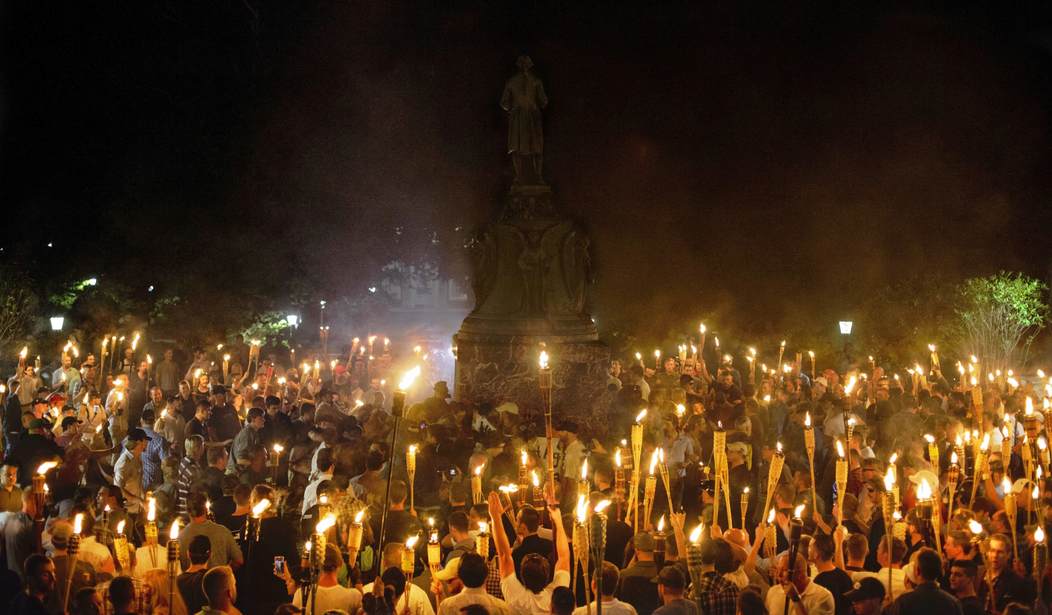WASHINGTON – While citing this year’s spike in anti-Semitism around the United States, Rep. Ted Deutch (D-Fla.) today called on the Department of Education to crack down on perpetrators he said are trying to silence Jewish voices on college campuses.
During a House Judiciary Committee hearing, Deutch said he recently spoke with the Education Department’s assistant secretary in the Office for Civil Rights, who told him that there are currently zero ongoing investigations into cases of anti-Semitism on college campuses. Candice Jackson serves as acting assistant secretary of Education for the Office for Civil Rights.
The Anti-Defamation League reported this month in its latest Audit of Anti-Semitic Incidents report that from Jan. 1 to Sept. 30 there were 1,299 anti-Semitic incidents across the U.S., which includes assault, vandalism and attacks on Jewish facilities. That is a 67 percent increase from numbers recorded during the same span in 2016. The report shows that 118 of the incidents this year were on college campuses, which is a 59 percent increase from 2016.
“Why shouldn’t we be concerned about every one of those individuals and their ability to sustain and fight back and have a Department of Education that’s willing to investigate those kinds of attacks?” Deutch asked. “This one is really hard for me to sometimes understand.”
According to the ADL report, there was a noticeable spike in anti-Semitic incidents immediately following the violent Unite the Right rally in Charlottesville, Va., in August. The report shows that there were 306 incidents in the third quarter of 2017, 221 of which took place on or after the August rally.
Simon Wiesenthal Center Associate Dean Rabbi Abraham Cooper said “surging” anti-Semitism “is a major feature of extremists, from elements of the alt-right to the mantras of hate from Islamist terrorism.”
“Jewish students can’t table for their organizations at student events fairs without being physically surrounded and shouted down by extremist anti-Semitic campus organizations,” he testified. “They can’t bring speakers to school like every other students group and gender, racial, and ethnic group can, because the speakers will be heckled into silence. They’re often reluctant to run for student government at some schools because they’ve seen the numerous times in just the past few years that Jewish students have been called out because they are Jews and often excluded from student government expressly due to their involvement in Jewish life on campus.”
Cooper detailed incidents including a rock hurled at a Jewish student and Jewish students being called “dirty Jew,” “f***ing Jew” and told to “burn in hell.”
“Jewish students report fearing displaying their Jewish star necklaces, wearing their Jewish sorority or fraternity letters and walking to Hillel for Sabbath dinner,” the rabbi noted.
Much of Tuesday’s discussion circled around the Anti-Semitism Awareness Act, a bill that would codify the State Department’s Special Envoy to Monitor and Combat Anti-Semitism’s definitions for use by the Office for Civil Rights. The legislation has passed in the Senate, but awaits consideration in the House. Opponents have concerns that the legislation could impede First Amendment rights for individuals critical of Israeli policies.
Deutch said it’s one thing to criticize Israel’s government or its policies, but it’s another issue when someone takes the stance that Israel does not have the right to exist as a country and uses it to shout others down.
The State Department defines anti-Semitism as “a certain perception of Jews, which may be expressed as hatred toward Jews.” The agency’s list of examples includes calling for the death or harm of Jews, Holocaust denial and demonization of Israel.
ADL’s CEO and National Director Jonathan Greenblatt said during the hearing that it’s ironic that the State Department is able to use the definition with every country in the world, but the Department of Education is unable to define anti-Semitism domestically.
“(The legislation) doesn’t inhibit the ability of an individual – student, faculty or otherwise – to criticize an Israeli policy,” Greenblatt said. “(The definition is) used by our embassies around the world to track anti-Semitic incidents, so some might not like it in its abstraction, but its practicality, I would submit to this committee, it has been vital to our State Department doing its work to protect Jewish communities around the world.”
He added that Deutch was “dead-on” with his assessment of the Department of Education.
Paul Clement, a partner at Kirkland & Ellis LLP, described the definition as “consultative.”
“It sure beats the alternative, from a First Amendment perspective, which is no definition at all,” Clement said.
Rep. Trent Franks (R-Ariz.), an outspoken pro-Israel lawmaker, said that for those who care “deeply about Israel, the more desperate we are to get the policy right.”









Join the conversation as a VIP Member